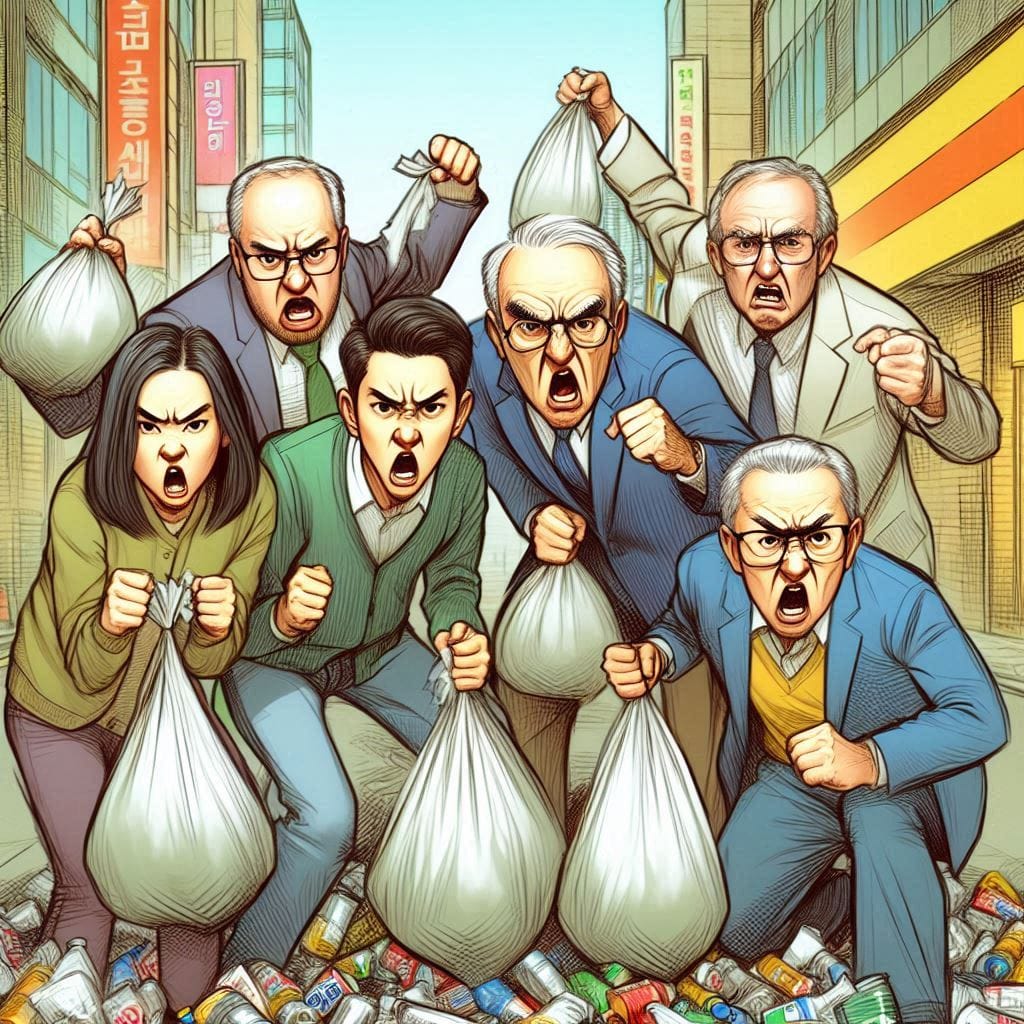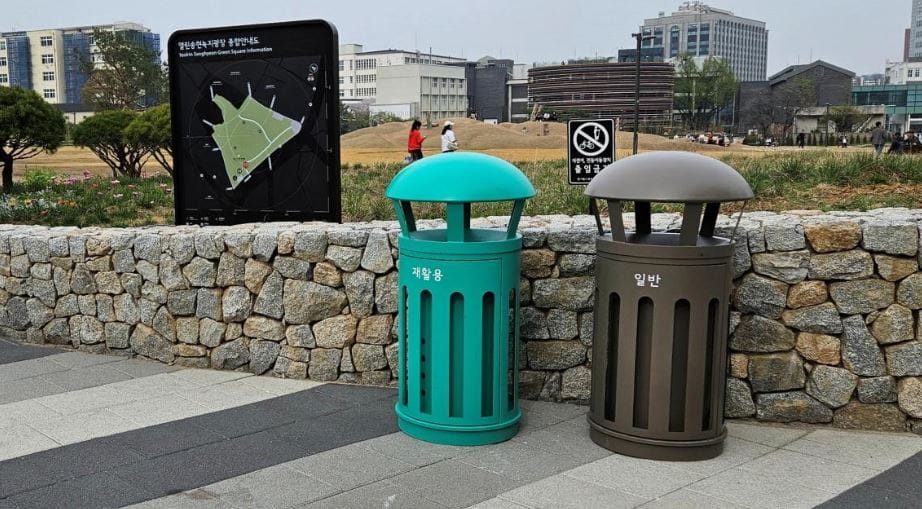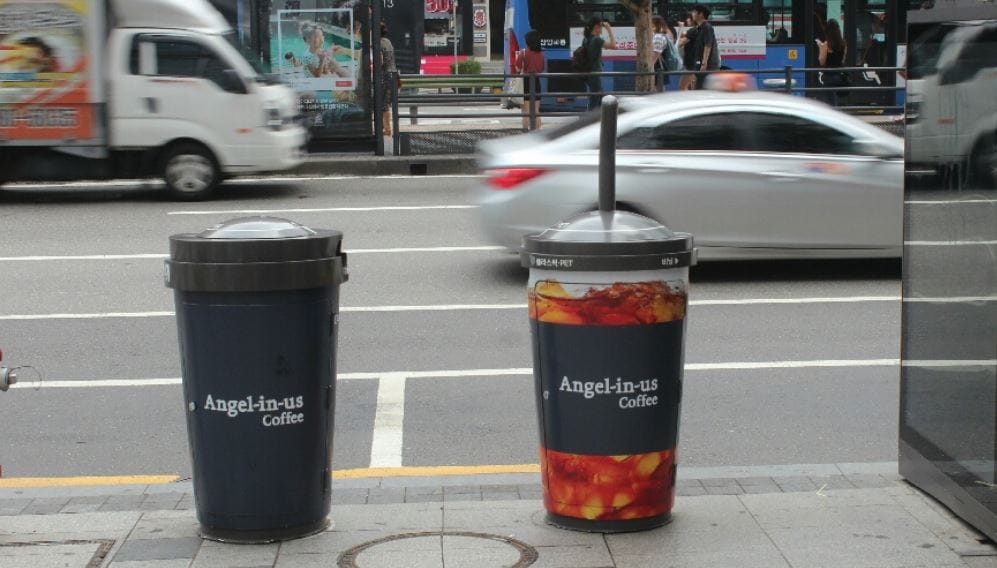We need MORE trash cans!
Trash can shortage in Seoul

Many foreign tourists visiting Korea often voice a common concern. They ask, in unison, why there are so few trash cans in Seoul. It's a question that even Koreans themselves have been asking. The usual explanation points back to a bombing incident at Gimpo Airport in 1986, where an explosive device was reportedly hidden in a metal trash can, leading to a reduction in their number for security reasons. While it is true that some facilities replaced their trash cans with transparent versions or reduced their numbers, city-wide reduction in trash bins didn't stem from terrorism concerns.
Instead, the more acknowledged reasoning traces back to 1995, when recycling laws were introduced. This included the requirement to purchase designated trash bags for waste disposal. The burden led some citizens to sidestep the rules by discreetly dumping personal trash into public bins without paying. Consequently, Seoul decided to decrease the number of trash cans altogether. This policy decision is often criticized as hasty, akin to performing surgery for mere stomach pain by removing organs. It addressed the symptom by simply eliminating trash cans rather than making littering difficult, indicating a lack of fundamental problem-solving.

Earlier this year, Seoul announced a plan to increase the number of trash cans with a new design, aiming for 7,500 by next year. Yet, comparing this to Berlin—a city 1.5 times larger with 20,000 trash cans—it still seems insufficient. Increasing trash cans isn't just about design and manufacturing costs; there are maintenance expenses and community concerns about increased littering from misuse, which Seoul cannot ignore. Therefore, policies that make illegal dumping more difficult must be explored and implemented.

How is waste managed in your community? In Seoul's Gangnam area, a new coffee cup-shaped trash can design reportedly reduced illegal dumping incidents by over 60%. Psychological aspects of design influence behavior as well. The new round lid design strategy addresses the common littering of leaving half-finished drinks on the top of trash bins. Although more trash bins in Seoul is welcome news, a significant number increase is necessary given the recent surge in trash—thanks, in part, to balloon deliveries from North Korea.😥✔️




Comments ()